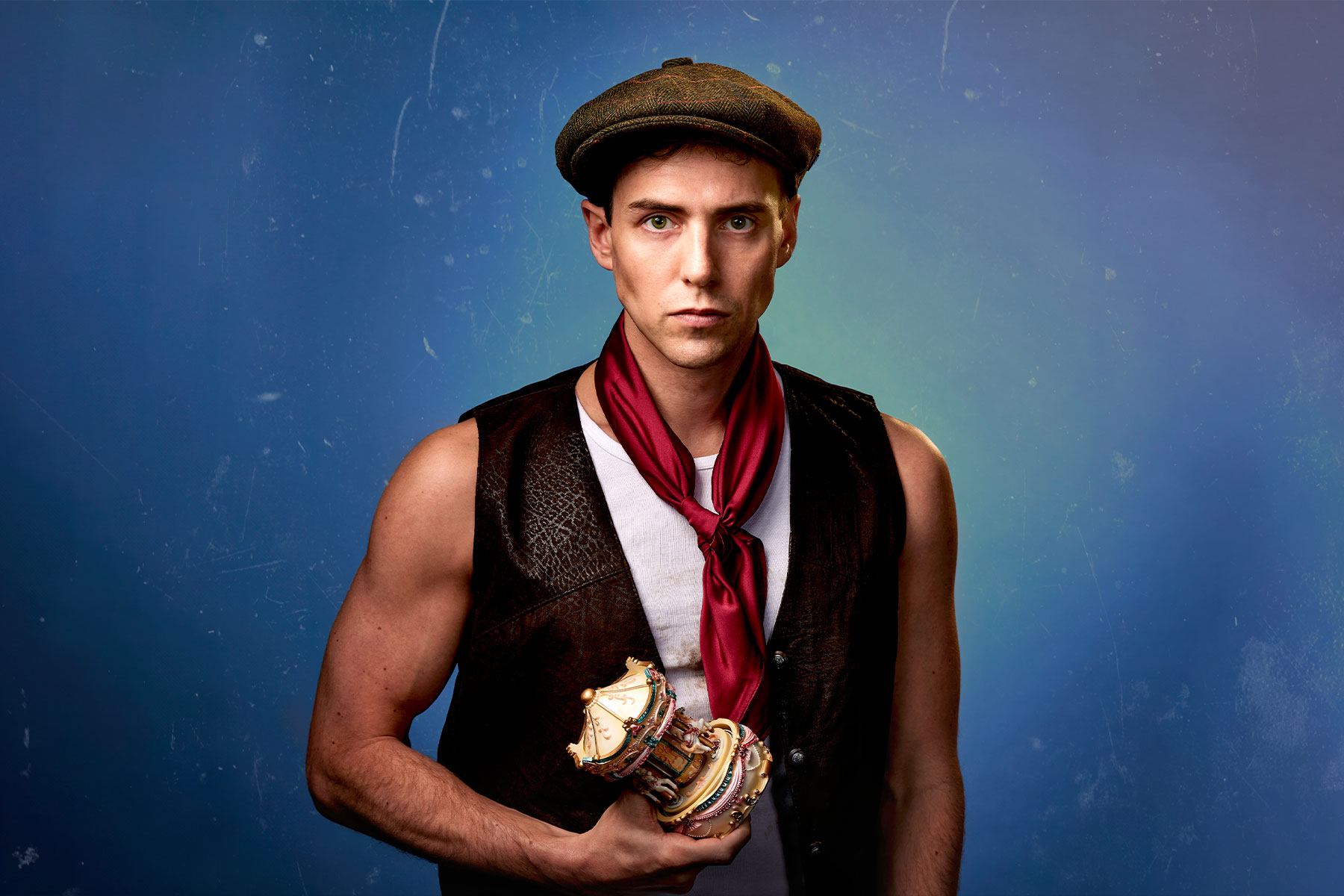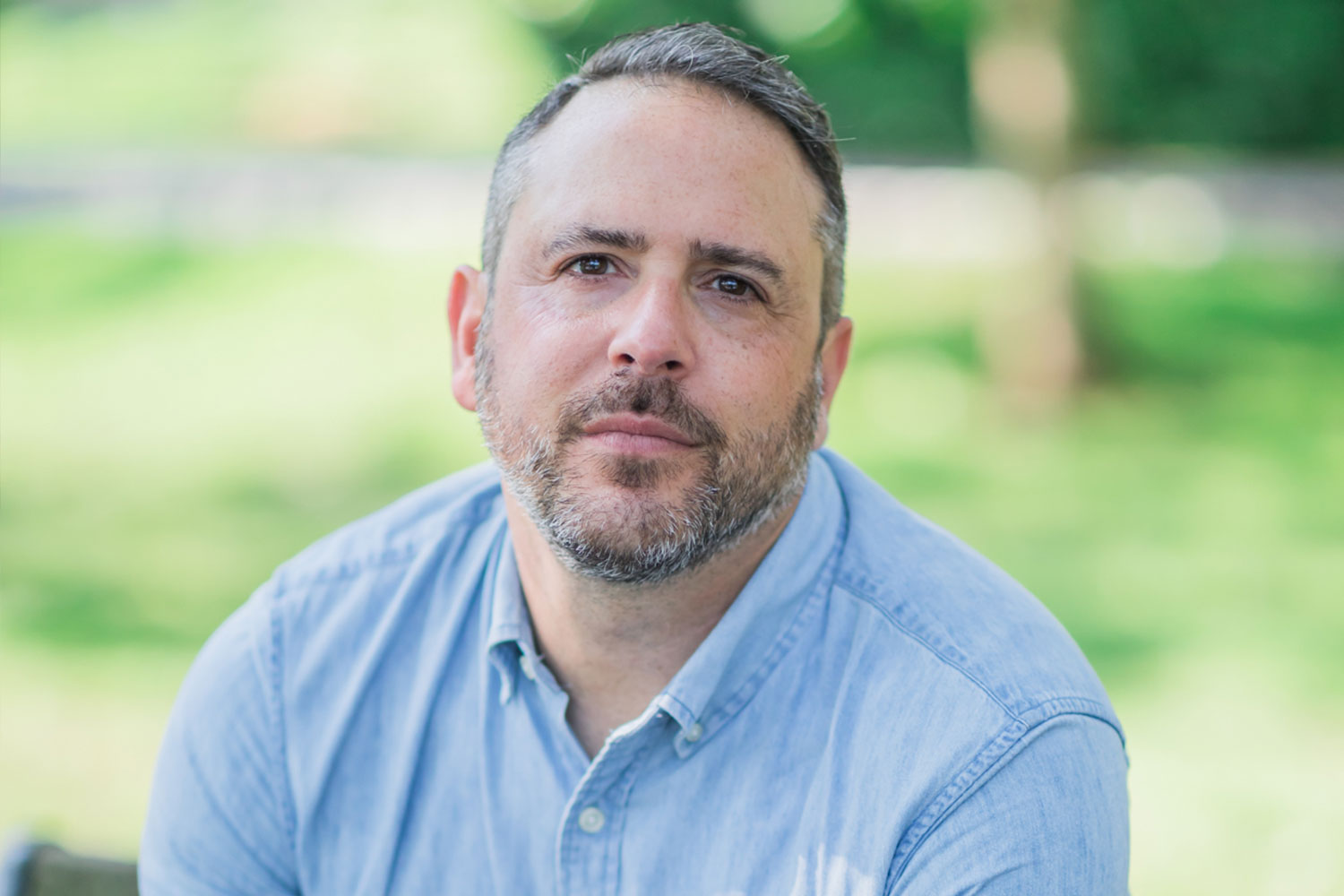20 Questions With… Lee Evans
Since winning the Perrier in 1993, comedian Lee Evans’ hugely successful stand-up career has included several TV series (World of Lee Evans, The Lee Evans Show and Lee Evans – So What Now), chart-topping DVDs and two sell-out West End seasons six weeks at the Lyric Theatre in 1996, ten weeks at the Apollo in 1998).
In 2002, Evans became the first solo comedian to play Wembley Arena, where he returned in 2005 to play to more than 60,000 over six sell-out nights. On the same 2005 tour, he broke the Guinness world record for the biggest solo comedy audience ever – 10,108 at the Manchester Evening News Arena, which topped Eddie Izzard’s previous achievement of 8,700.
Evans’ zany energy has also won him acting roles in feature films including Mousehunt, There’s Something About Mary, The Fifth Element, FreezeFrame, The Medallion and, airing on ITV in April, HG Wells’ period drama The History of Mr Polly.
Evans made his West End acting debut in 2004 starring opposite Michael Gambon in Matthew Warchus’ revival of Samuel Beckett classic Endgame, which he followed up later the same year with his musical debut in the original cast of the multi award-winning West End production of Mel Brooks’ The Producers. For his performance as timid accountant Leo Bloom, Evans was nominated for the Laurence Olivier and Whatsonstage.com Theatregoers’ Choice Awards for Best Actor in a Musical, but lost out in both to his co-star Nathan Lane, who replaced the initially cast Richard Dreyfuss as Max Bialystock and later had to withdraw himself due to injury.
This week, Evans returns to the West End stage to star opposite Jason Isaacs in Harry Burton’s 50th anniversary revival of Harold Pinter’s one-act two-hander The Dumb Waiter, in a limited season at the Trafalgar Studios.
Date & place of birth
Born 25 February 1964 in Bristol.
Lives now in
I’ve just moved to Billericay in Essex.
Why did you want to become an entertainer?
It was an accident actually. I haven’t quite found my job yet. I keep having this discussion with my wife Molly. One day I’m going to get a job, a job that I was meant to have. I’m not sure anyone knows what job they do really.
First big break
Winning the Perrier Award I think. And then I did a film with a good friend of mine, which was Funny Bones and then some other films came along like Mousehunt I did with Nathan Lane and There’s Something About Mary and Fifth Element. That all just came about really, I didn’t set out to do any of it. I went to LA because a friend of mine who I’d met doing the Just for Laughs Festival in Canada said come down and do some gigs. He allowed me to do an hour every weekend in LA and then Dreamworks came down and Fox and all these movie people. So I said yeah okay. I met up with the Farrelly brothers and had a lot of fun. We wrote the bit I did in There’s Something About Mary in a bar, we just got really drunk. My remit for that film was “you’re an idiot, we know you’re an idiot, so just do your thing”. We were all told, “there’s a beautiful woman and we don’t care what you do but you’ve got to try and get this woman”. So I did this sort of Hugh Grant, English architect and went for the sympathy thing too with the wheelchair.
Career highlights to date
I’ve got a great biography in me that I never wrote about working with Mel Brooks. That was phenomenal, I loved it so much, he’s such a great man. And working with Michael Gambon. And I think the last stand-up tour was quite good. We got in the Guinness Book of Records for the biggest-ever comedy audience attendance. That was great. I’ve always wanted to be in the Guinness Book of Records. I think Molly has a copy of it somewhere. And then winning quite a few awards for The Producers was great. As a kid when I came into the West End, I never dreamt that I’d be actually performing in the theatre with all the lights and all that. My dad’s a musician so he’d bring us into the West End now and again. We couldn’t afford to go to any shows alas, but it’s still such a magical place to be. I never thought I’d actually be here. It’s great.
Do you consider yourself an actor or comedian first?
I’m not an actor. I come to plays from the angle of naïvety, and it could be a bad thing but I have my own process. I spend many hours on my own going through the text and my character and every aspect. I have to be left on my own for some time. That’s the only way I can do it. I find rehearsals shocking. Actors are really out there, but I’ve always been quite reserved and shy. So to be in the presence of actors and watch them work is phenomenal but terrifying. I’ve still got a lot to learn.
Which actor have you learnt most from?
Michael Gambon was brilliant (on Endgame). He has an unbelievably powerful voice, he’s found some sort of base dynamic in the building. I was talking all high and he was down here. He was inspirational, he became like a father figure to me. Every night before curtain-up, I would be pacing and doing press-ups and other exercises behind Michael, who was just sitting still in this chair. He’d say, “what are you doing?”. And I’d say, “I’m really worried”. And he’d say “this is a play, this is magic.” And I’d say, “it’s not magic where I’m from”. He would sit there dead calm, not an inkling of nerves, and he’d concentrate on the text whereas I was concentrating on trying to survive.
Why were you so nervous?
I come from an environment of fear. With stand-up, the whole evening is spent just trying to survive in front of people who are drunk and getting restless. You’re always looking at your notes that were written in a hotel room and you’re worrying: although they worked yesterday, they may not work tonight.
Other favourite co-stars
Christopher Walken I found brilliant to work with (on Mousehunt). And Oliver Reed was brilliant (on Funny Bones). Like Michael, he looked like he wasn’t taking it too seriously and he made it a joyous experience. Some people they look as if they’re not taking anything seriously and it’s not meant to be like that. But what they are doing in effect is actually taking it very seriously. They seem to know instinctively exactly what’s required. I suppose that comes from experience.
Favourite playwrights
I do like Beckett and Pinter a lot. Beckett is very philosophical, examining oneself and the world outside that, and yet being completely and utterly pointless. I don’t want to put a downer on things but basically that’s life, and in between it’s what you make it presumably. Also Tom Stoppard, I like. With all these things, if you’re given the chance and they come up maybe one day you’ll be able to do them.
After your experience with The Producers, would you consider doing a musical again?
That was odd. I rehearsed with one bloke (Richard Dreyfuss), and subsequently I went through five more! I never had a day off in sixth months, and afterwards I broke, I was exhausted. I only did The Producers because I wanted to work with Mel Brooks. If you’re a comedian, you’re going to be a fan of his. Then Nathan Lane, who I’ve known for many years (from Mousehunt) and love dearly, said he was going to come over and do it and that was great. I’d like to be part of a brand new one, but other than that, no, I wouldn’t do another musical. It’s extremely hard work.
What was the last thing you saw on stage that had a big impact on you? And the first?
I took Molly to The Sound of Music. I thought it was brilliant. The first show I remember going to was my dad playing at Talk of the Town. I think it’s now the Hippodrome. I had quite an eccentric imagination as a child and I found the whole experience magical and unbelievable.
If you could swap places with anyone (living or dead) for a day, who would it be?
Who’s the new guy at the UN? Probably the head of the UN because I’d gather all the people in the room and lock the door and say, “you know what, leave us out of it and just fight amongst yourselves”.
Favourite book
John Steinbeck’s Of Mice and Men. I just think it sums life up a bit really – that aspiration that life is going to be brilliant but you have to struggle through all this stuff to get to it and then maybe it might not be quite like that when you get there.
Favourite holiday destinations
I really like Southend-on-Sea. I lived there for many years. I like Brighton too. I don’t like going abroad. I’ve tried many holidays, and whether it’s my own fault I don’t know, but I find it difficult to relax. I’m not a beach man. I can’t put a pair of shorts on, I feel such a complete idiot. And also I tend to sit there and think I should be doing something else more constructive. My writing partner Stuart lives in Brighton. I go down and see him every weekend and it’s lovely – I don’t have to take any of my clothes off because it’s too cold. And I can quite happily look at the sea knowing the coast of France is the other side and if you turn right a bit you’ll come to America. I like knowing that’s all out there.
Favourite after-show haunts
I don’t have any. I go straight back home and try to work out what that was all about. I need to get out much more. I know it’s a bit sad I don’t do enough, but I think it’s because I have a family. I feel really guilty if I go out to the pub and get pissed.
Why did you want to accept your part in The Dumb Waiter?
I pleaded to do it. I wanted to gain what knowledge I could from doing a Pinter play because I admire him very much. It’s an old play, but I tend to ignore what’s been done before. I don’t care. What interests me is what I can contribute. What the play is about is the struggle with power and status and where you are in the pecking order. There’s a big organisation in the outside world controlling these two insignificant people locked in this room. There’s Ben and there’s my character Gus, who’s even more insignificant.
Tell us more about Gus.
He’s trying to figure out what’s going on outside that room and what that means to him and he struggles and pushes against Ben to try and gain some sort of status. But he’s always crushed down because Ben appears to hold all the knowledge, and Ben meanwhile is trying to figure out why this man is always questioning his authority.
Why do you admire Harold Pinter?
He’s a great writer and a very courageous person. I was fortunate enough to do a bit of Beckett a couple of years ago with Endgame, which I really enjoyed. Pinter seems a natural progression. I didn’t want to meet Harold because I was too scared. They said, “Harold will come down tomorrow if you like”, and I said “please no”. But he phoned, he was on speaker phone. I just shut my mouth. “It’s nice to have you doing the play,” he said. And all I could say was, “yes sir”.
Do you have a favourite Pinter play?
The Caretaker is a great play. Harold is always concerned with the power of the individual and the loss of control against authority. They’re quite political in a way, his plays, and I kind of like that aspect to his writing. People who come to the play can see a little bit of themselves in there because they’re probably struggling to find out what the system is all about too. You know, why do we go to work and work for this big organisation every day, what have they got planned for me, how can I get some small inkling of benefit for me…? It’s that everyman thing going on.
Bill Bailey is also tackling Pinter in the West End this month in Pinter’s People). What is it about Pinter’s work that appeals to comedians?
The intense blackness of it and the desperation and hopelessness of the characters. I find it very funny because it just sums life up, being completely, utterly pointless and at times ridiculous. The mistake you can make with Pinter and Beckett to some extent is to take them too seriously. They were inspired by vaudeville and that sort of comedy. I’ll try to put plenty of physical stuff in. There are some opportunities for that, but already the director is calming me down – I get a lot of that!
What’s the best advice you’ve ever received?
The best advice I ever received is not to listen to any advice. And don’t give ever give any. Mel Brooks used to say that as well. Just do what you want. I think that’s the best way because you need to stop worrying so much about what other people think. This play I’m doing is never going to be good enough. I was up worrying about it last night. In a seven-week run, I think maybe in about the middle of week seven I might think one night, “yeah, that was okay”, but I’m never going to think it’s perfect. I don’t like that pressure. But I don’t ever give up on something. Whatever you see is always 100 percent of what I can give right then.
What are your future plans?
I’ve just finished a film script and I’ve got to give it a quick re-write. Before this play, I was sat in a darkened room for five months doing that. It’s called Hitler’s Weatherman. That’s what it’s about, a weatherman in the Second World War. It’s based on true events. No leader or head of a country at war would ever make a decision without consulting his weatherman to see if conditions were good or bad to attack or be attacked. Unfortunately for Hitler’s weatherman, he gave slightly dodgy weather predictions, which actually changed the Second World War. Yes, meteorologists can change history. I would like to be in the film, but we haven’t taken it to anybody yet. Mainly my plan for the future is just to learn more. I want to be able to contribute, not in some big meaningful way just as an individual not wanting to waste everything I might have gained over the years.
The Dumb Waiter opened on 8 February 2007 (previews from 2 February) at Trafalgar Studios, where its limited season continues until 24 March 2007.










